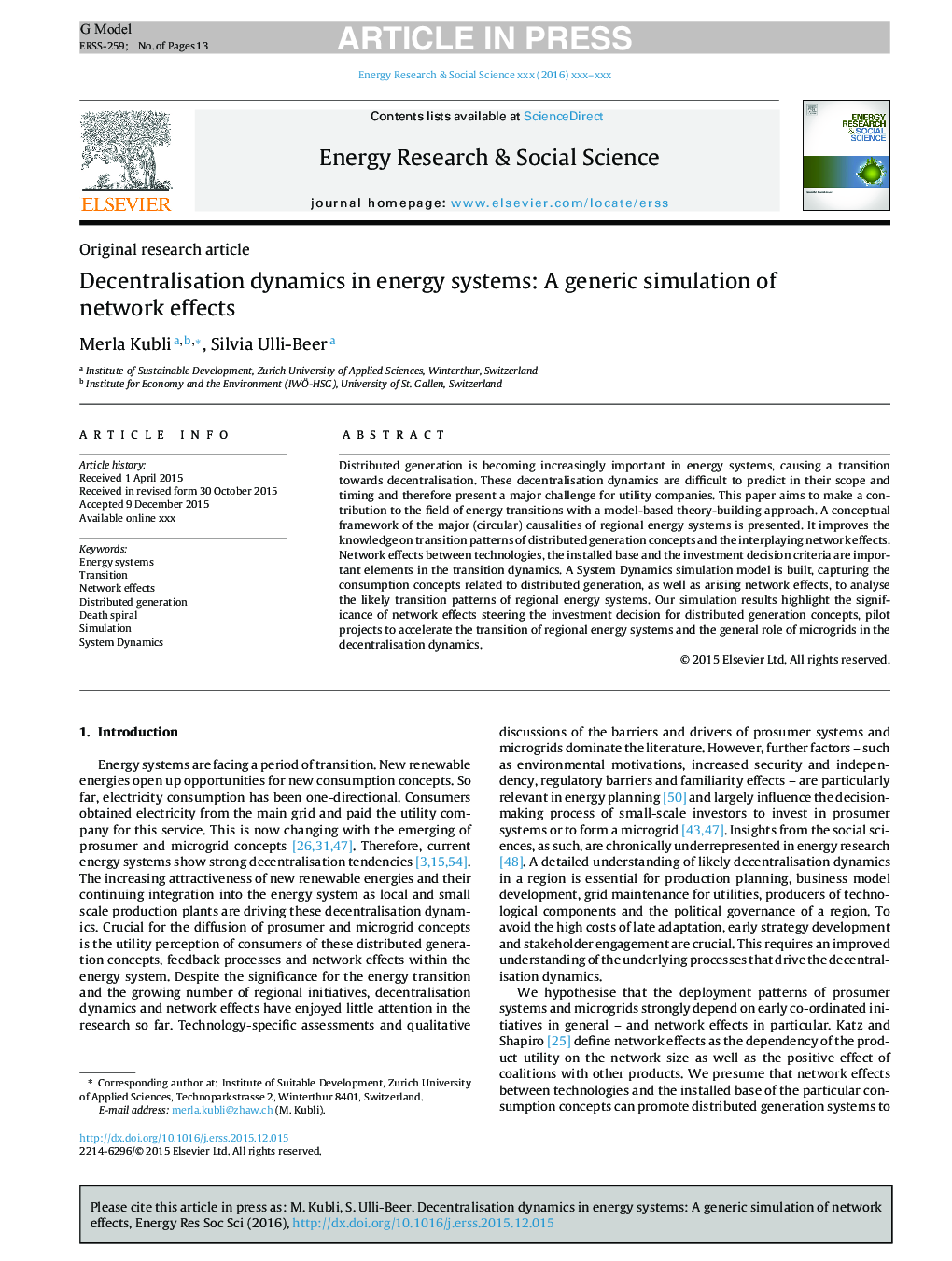| Article ID | Journal | Published Year | Pages | File Type |
|---|---|---|---|---|
| 6558256 | Energy Research & Social Science | 2016 | 13 Pages |
Abstract
Distributed generation is becoming increasingly important in energy systems, causing a transition towards decentralisation. These decentralisation dynamics are difficult to predict in their scope and timing and therefore present a major challenge for utility companies. This paper aims to make a contribution to the field of energy transitions with a model-based theory-building approach. A conceptual framework of the major (circular) causalities of regional energy systems is presented. It improves the knowledge on transition patterns of distributed generation concepts and the interplaying network effects. Network effects between technologies, the installed base and the investment decision criteria are important elements in the transition dynamics. A System Dynamics simulation model is built, capturing the consumption concepts related to distributed generation, as well as arising network effects, to analyse the likely transition patterns of regional energy systems. Our simulation results highlight the significance of network effects steering the investment decision for distributed generation concepts, pilot projects to accelerate the transition of regional energy systems and the general role of microgrids in the decentralisation dynamics.
Related Topics
Physical Sciences and Engineering
Energy
Energy (General)
Authors
Merla Kubli, Silvia Ulli-Beer,
